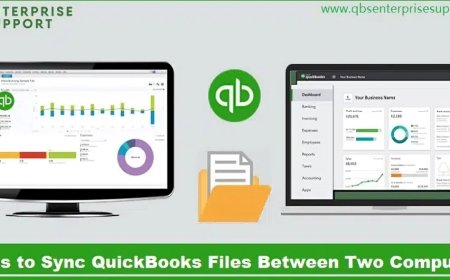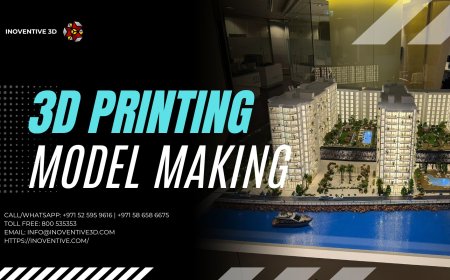Rules for FHA Loan in Rhode Island
Explore FHA loan requirements in Rhode Island, including pros and cons, to determine if it's the right choice for you.
Purchasing a home is a significant milestone, often accompanied by the complex landscape of mortgage options. For many prospective homeowners in Rhode Island, Federal Housing Administration (FHA) loans present an accessible pathway to homeownership. This comprehensive guide delves into the specific requirements for obtaining an FHA loan in Rhode Island and weighs thepros and cons of fha loan to help you make an informed decision.
What is an FHA Loan?
An FHA loan is a mortgage insured by the Federal Housing Administration, designed to assist low to moderate-income borrowers who may not qualify for conventional loans. These loans are particularly popular among first-time homebuyers due to their more lenient credit requirements and lower down payment options.
FHA Loan Requirements in Rhode Island
To qualify for an FHA loan in Rhode Island, borrowers must meet specific criteria:
Credit Score
-
Minimum Requirement: A credit score of at least 580 is required to qualify for the low down payment advantage of 3.5%. Applicants with credit scores between 500 and 579 may still be eligible but will need to make a 10% down payment.
Down Payment
-
Low Down Payment: One of the most attractive features of FHA loans is the low down payment requirement. Qualified borrowers can put down as little as 3.5% of the purchase price.
Debt-to-Income Ratio (DTI)
-
Acceptable DTI: Lenders typically prefer a DTI ratio no greater than 43%. However, some exceptions allow for higher ratios, depending on the lender's discretion and the borrower's overall financial profile.
Employment History
-
Stable Employment: Borrowers are generally required to demonstrate steady employment and income for at least two years, often verified through pay stubs, W-2 forms, and tax returns.
Property Requirements
-
Primary Residence: The property must be the borrower's primary residence and meet specific safety, security, and soundness standards set by the FHA.
Loan Limits
-
County-Specific Limits: FHA loan limits vary by county and are determined based on local housing costs. In Rhode Island, all five counties have a loan limit of $736,000 for a single-family home, which is above the standard limit of $498,257. Limits can reach as high as $1,415,400 for a four-family house.
Here are the pros and cons of fha loans.
Pros of FHA Loans
Understanding the advantages of FHA loans can help determine if they align with your financial goals:
Lower Down Payment
-
Affordable Entry: FHA loans allow for a down payment as low as 3.5%, making homeownership more accessible to those without substantial savings.
Flexible Credit Requirements
-
Credit Leniency: Borrowers with lower credit scores can still qualify for FHA loans, providing opportunities for individuals working to improve their credit.
Higher Debt-to-Income Ratio
-
DTI Flexibility: FHA loans often accommodate higher DTI ratios compared to conventional loans, offering flexibility for borrowers managing existing debts.
No Income Limits
-
Broad Eligibility: Unlike some loan programs, FHA loans do not impose minimum or maximum income requirements, making them accessible to a wide range of borrowers.
Assumable Loans
-
Transferable Financing: FHA loans are assumable, meaning if you sell your home, the buyer can take over your existing loan, potentially at a lower interest rate.
Cons of FHA Loans
It's essential to consider the potential drawbacks associated with FHA loans:
Mortgage Insurance Premiums (MIP)
-
Additional Costs: FHA loans require both an upfront mortgage insurance premium and annual premiums, increasing the overall cost of the loan.
Property Standards
-
Strict Appraisals: Properties must meet specific health and safety standards, which can limit options, especially with fixer-uppers.
Loan Limits
-
Borrowing Caps: FHA loan limits may restrict purchasing power, particularly in high-cost areas where property values exceed FHA limits.
Primary Residence Requirement
-
Occupancy Obligation: FHA loans are intended for primary residences only, making them unsuitable for investment properties or second homes.
FHA Loan Process in Rhode Island
Navigating the FHA loan process involves several key steps:
-
Pre-Approval: Obtain a pre-approval letter from an FHA-approved lender to determine your budget and demonstrate seriousness to sellers.
-
Home Search: Work with a real estate agent familiar with FHA requirements to find properties that meet FHA standards.
-
Appraisal: An FHA-approved appraiser will assess the property's value and ensure it meets minimum property standards.
-
Underwriting: The lender reviews all documentation to confirm eligibility.
-
Closing: Finalize the loan, pay closing costs, and receive the keys to your new home.
Rhode Island FHA Loan Assistance Programs
After understanding fha loan pros and cons, you must know Rhode Island offers programs to assist homebuyers, particularly first-time purchasers:
-
15kDPA Program: Provides $15,000 in assistance for down payment and/or closing costs in the form of a zero-percent interest rate loan to first-time homebuyers in Rhode Island.
-
FirstGenHomeRI: Offers $25,000 in down payment and/or closing cost assistance to first-generation homebuyers.
-
Extra Assistance Program: Provides additional support to eligible first-time homebuyers to finance down payment and/or closing costs.
Is an FHA Loan Right for You?
Deciding whether an FHA loan is suitable depends on your financial situation and homeownership goals. Consider the following:
-
Financial Readiness: Assess your credit score, savings for a down payment, and ability to cover mortgage insurance premiums.
-
Property Eligibility: Ensure the properties you're interested in meet FHA standards.
-
Long-Term Plans: Consider how long you plan to stay in the home, as FHA loans are best suited for primary residences.
Conclusion
FHA loans offer a viable path to homeownership for many in Rhode Island, especially those with limited savings or lower credit scores. By understanding the specific requirements and fha pros and cons, you can make an informed decision about whether an FHA loan aligns with your homeownership aspirations.
For personalized guidance and to explore your FHA loan options in Rhode Island, consider reaching out to Bouk Mortageg. Our experienced team is dedicated to helping you navigate the FHA loan process, ensuring you secure the financing that best fits your needs.





































